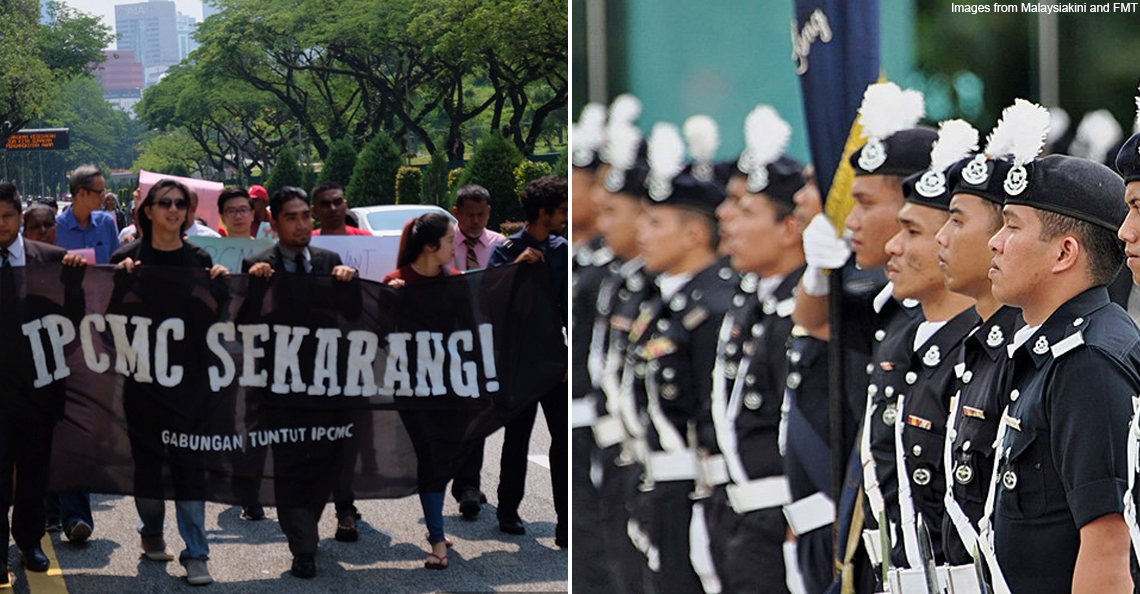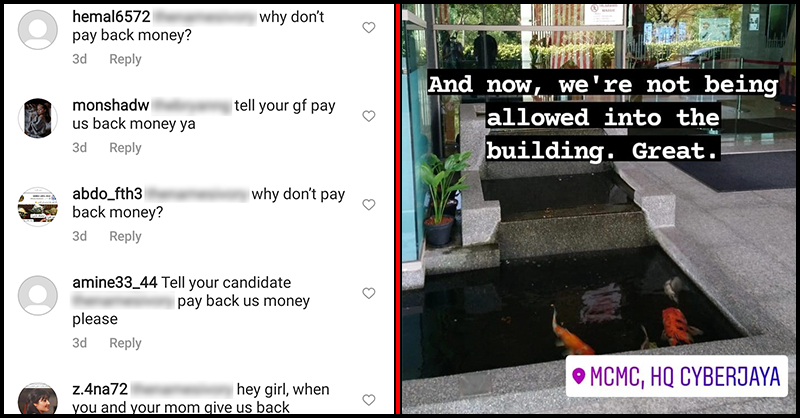Non-Chinese Malaysian police officers start learning to speak in Mandarin and other languages
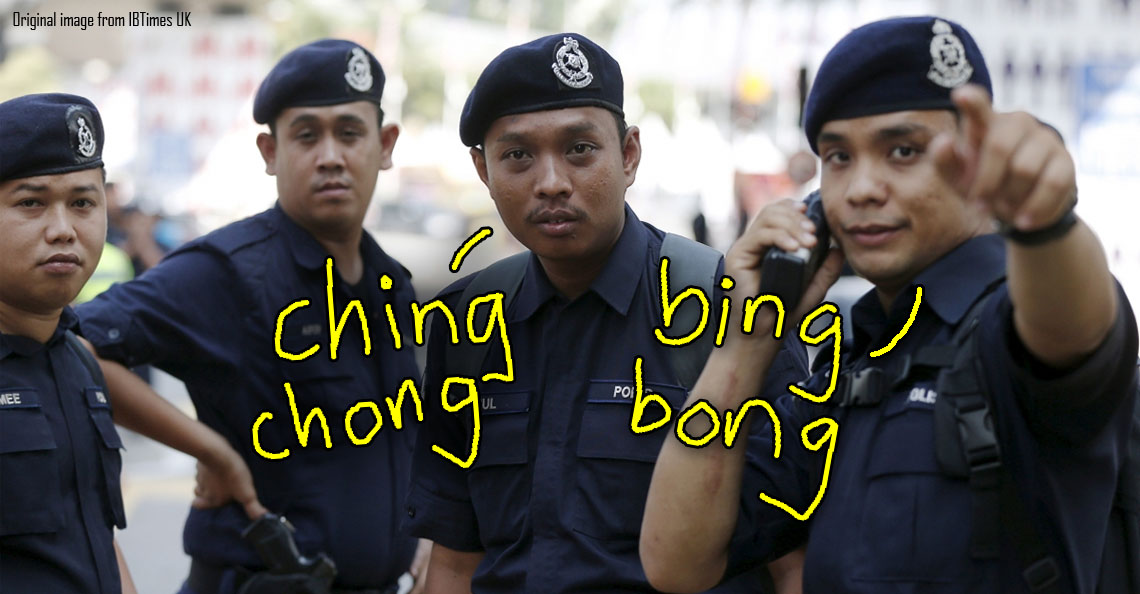
- 2.0KShares
- Facebook1.9K
- Twitter4
- LinkedIn4
- Email7
- WhatsApp55
Pretty soon, Malaysian police officers will be able to speak fluent Mandarin, Sin Chew Daily reported. In an interview with the Commandant of the Royal Malaysian Police College (a police training institution in KL) Deputy Comm Datuk Yong Lei Choo revealed that PDRM plans to set up a language centre to offer Mandarin and other language courses!
Right now, the college already has a two-week course on Mandarin for non-Chinese officers to learn simple conversational phrases, such as greetings – ‘nihao’, ‘Gong Xi Fa Cai’, ‘ni shi wo de xiao ping guo‘, etc. While the new programme will not be compulsory, cops are nevertheless encouraged to pick up Mandarin due to the increasing importance of the Chinese language.
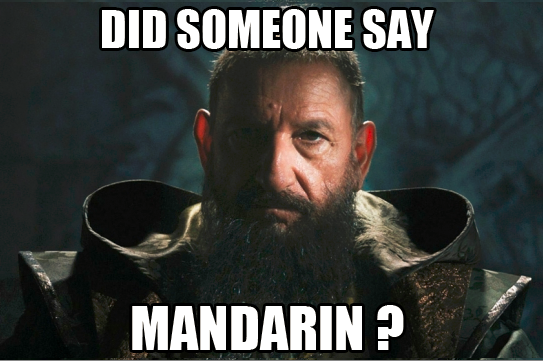
And the Malaysian police force is not the only law enforcement agency to see the value in learning Mandarin…
South Africa, Guyana and India are also making their cops learn Mandarin
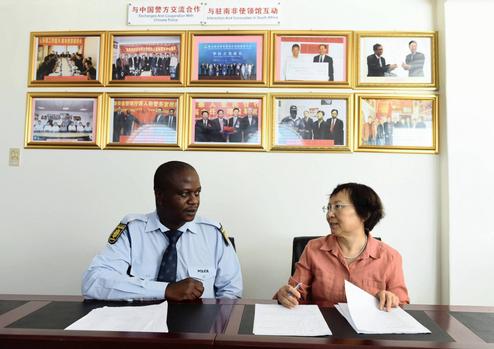
It turns out that many law enforcement agencies worldwide recognise the importance of learning Mandarin, and other languages, for that matter. To our surprise, we found out that police officers in South Africa and Guyana (a country in South America) have made it a priority to learn Mandarin!
Guess who’s funding classes for South African police? The Chinese Government! Reports do not state what motives the PRC could have for providing the South African Police Service (SAPS) with these classes – perhaps because China has become South Africa’s largest trading partner – but they have indeed been sending Chinese language teachers over there, while textbooks are provided by the Confucius classroom, since the country launched this pilot programme in 2013.
To understand the culture as well, some officers even got to go on a rombongan sambil belajar to the Orient, where they spent time at the Chinese police academy. Additionally, they also trained in kung fu! Listen as they sing Auld Lang Syne in Mandarin below (0:38):
Without a doubt, learning the language has been beneficial to them, say South African cops, especially those working in areas where they are more likely to interact with Mandarin speakers (ie. the airport or tourist spots) and places with Chinese communities, such as Johannesburg and Port Elizabeth.
“In our community we’ve got lots of Chinese shops. So now we learn how to communicate with them. Now we can understand if they try to explain what happened to us.” – Vuyokazi Mapukata, Police Officer in Cape Town, South Africa, on CGTN Africa

Meanwhile in the South American region, 100 ranks of the Guyana police force have begun learning Mandarin in a three-month course. Same as South Africa, the purpose is to break the language barrier between cops and civilians when probing robberies perpetrated against Chinese nationals. In most instances, they had to bring in a translator from the Chinese Embassy, but that was a waste of time, explained Crime Chief Wendell Blenhum.
Over in India, a particular incident spurred border police to make Mandarin compulsory among their ranks. The incident, known as the Doklam standoff, happened on 16 June 2017, when Chinese troops tried to extend an existing road in Doklam. This territory is claimed by both China and Bhutan, India’s ally. Coming to Bhutan’s aid, India deployed 270 troops to stop the Chinese. Although there were troops injured on both sides, no one died, but after this, the border police thought it best improve communication between Indian and Chinese troops.
Hilariously, Italian and Russian law enforcement agencies outsourced. They brought Chinese police personnel to their respective countries to patrol tourist destinations, maintain public order, watch out for thieves, and sometimes assist lost tourists in finding their way, rather than send their own cops for language lessons. Likewise, Italy sent their own cops to patrol the Great Wall, kinda like an exchange programme.
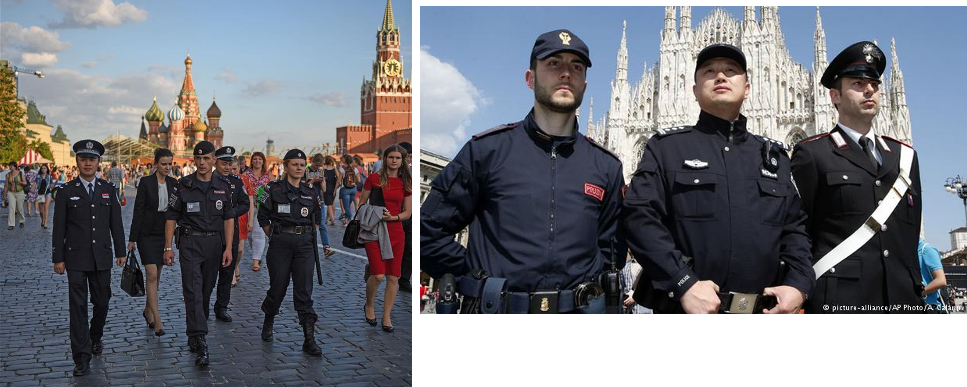
In the US and UK as well, they are beginning to recruit more bilingual cops as communities grow more diverse, not just for the Chinese language and dialects. We found out that the US has even sent cops abroad as part of immersion programmes, all to improve service to immigrant communities and easing their fear of officers.
“People need to feel they can trust you. They want to know you’re really there and not to spy on you. Once they do, people will open up and talk.” – Ahmed Nasser (native of Yemen), NYPD cop, NBC News
Being bilingual or multilingual opens doors to promotions
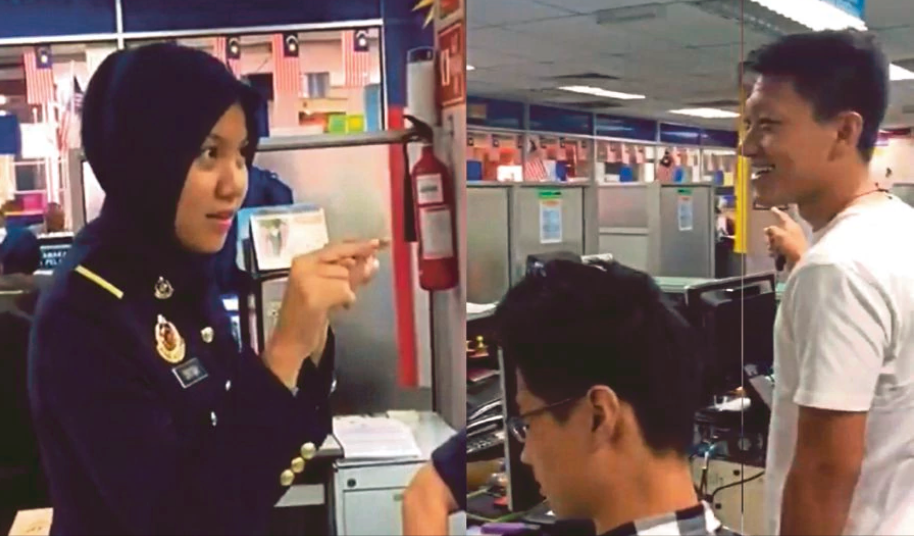
Here in Malaysia, we are mostly bilingual, having learned BM and English in Kebangsaan schools, or Chinese and Tamil in vernacular schools. This is a great thing and if given the opportunity to learn a new language – like our cops for example – hey, why not?
Remember the JPJ officer who became an overnight sensation after speaking in Mandarin to two Chinese students? Well, the 23-year-old received an award for being awesome.
“The reward for Nur Syafiqah from our Director-General is also an honour for the state RTD [aka JPJ], while the viral video has helped to improve the department’s image.” – Mohd Tarmizi Ghazali, Perlis JPJ Corporate Communications Officer, NST
Yep, being fluent in several languages also opens doors to promotions and rewards, in Malaysia, as well as in other countries. In fact, the UK is only hiring people for the police force if they speak one of these 14 languages besides English. The same can be said for any job or field, not just the men and women in blue.

In fact, it’s more crucial for the police, or anyone who works in law enforcement and the emergency sector to be able to be bilingual, if not multilingual. It’s important for them to be able to understand victims to get the most accurate testimonies, or communicate with witnesses, to ensure smooth investigations.
And that’s just during a lull… when a crisis strikes, there’s NO HECKING TIME to Google Translate!! If a cop yells for a running suspect to stop or he’ll shoot, in BM, but the suspect only understands Mandarin, then the suspect is gonna keep running and possibly force the cop to open fire. Or if someone calls the emergency hotline and explaining about someone having a heart attack in Mandarin, but the operator doesn’t understand, it could be a matter of life and death!
More importantly, it brings PDRM closer to the communities
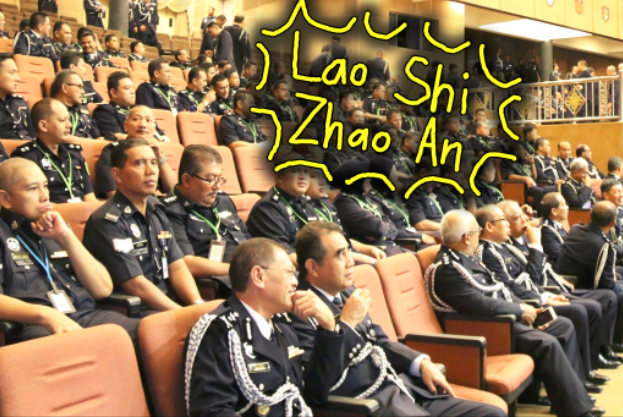
Being able to speak Mandarin or Tamil can even help the police reassure communities and diffuse any fear or tension too. People would naturally feel more at ease speaking to someone who understands them. Back in 2015, Deputy Home Minister Nur Jazlan Mohamed said they needed more Mandarin speakers posted to police stations to encourage Chinese people to report accidents or crimes.
The Malaysian Crime Prevention Foundation (MCPF) praised PDRM’s plans of setting up a language centre and said training personnel in Mandarin could bring PDRM closer to the Chinese community.
“MCPF fully supports the move to encourage police officers to learn Mandarin as it will help improve their soft skills and means of communication in our multiracial and multilingual society.
MCPF has been consistent in advocating the need to improve the service of the police force, including through better communication skills that could be enhanced by learning other languages. Knowing an additional language is an asset not only to the police but all Malaysians.” – Lee Lam Thye, MCPF Vice Chairman, The Star
- 2.0KShares
- Facebook1.9K
- Twitter4
- LinkedIn4
- Email7
- WhatsApp55

